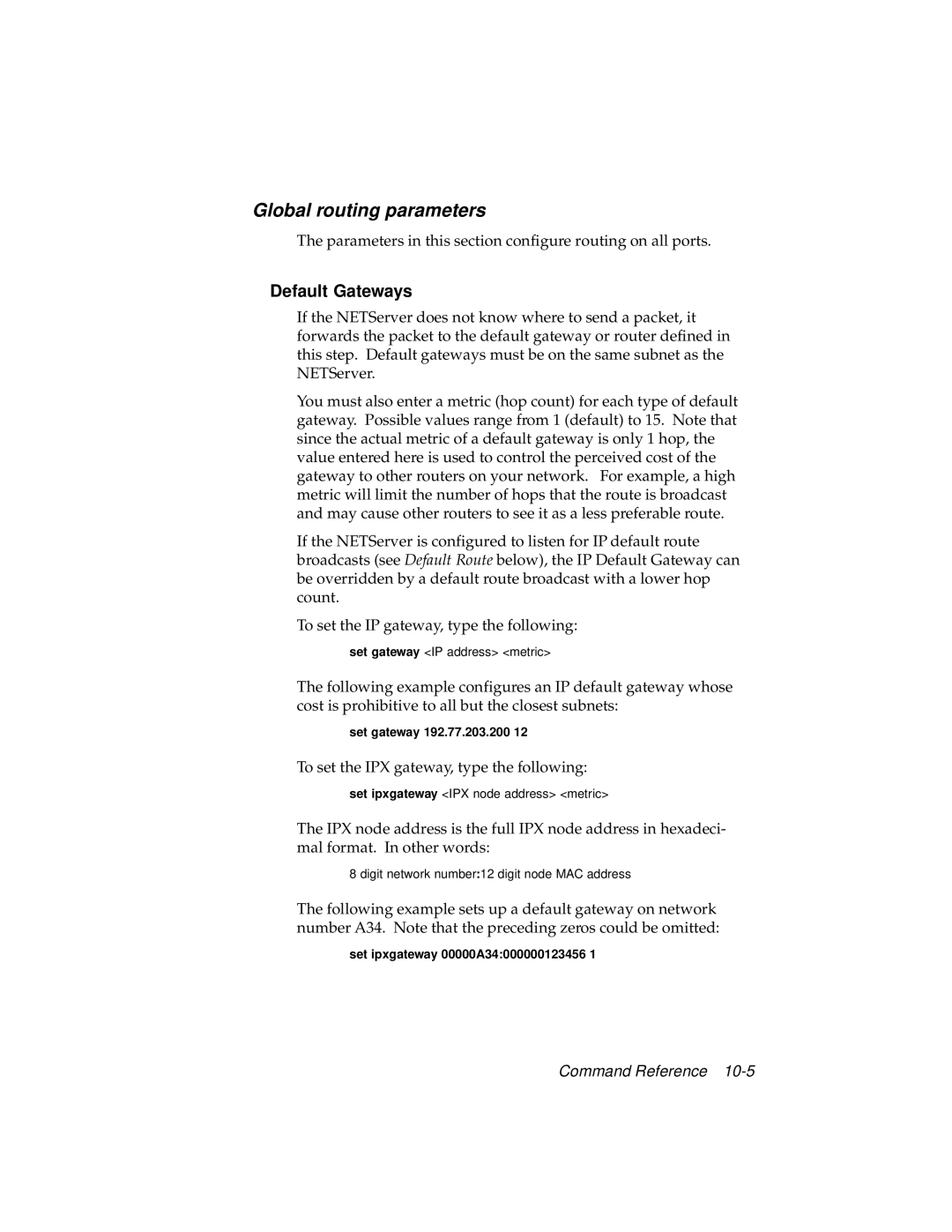Global routing parameters
The parameters in this section configure routing on all ports.
Default Gateways
If the NETServer does not know where to send a packet, it forwards the packet to the default gateway or router defined in this step. Default gateways must be on the same subnet as the NETServer.
You must also enter a metric (hop count) for each type of default gateway. Possible values range from 1 (default) to 15. Note that since the actual metric of a default gateway is only 1 hop, the value entered here is used to control the perceived cost of the gateway to other routers on your network. For example, a high metric will limit the number of hops that the route is broadcast and may cause other routers to see it as a less preferable route.
If the NETServer is configured to listen for IP default route broadcasts (see Default Route below), the IP Default Gateway can be overridden by a default route broadcast with a lower hop count.
To set the IP gateway, type the following:
set gateway <IP address> <metric>
The following example configures an IP default gateway whose cost is prohibitive to all but the closest subnets:
set gateway 192.77.203.200 12
To set the IPX gateway, type the following:
set ipxgateway <IPX node address> <metric>
The IPX node address is the full IPX node address in hexadeci- mal format. In other words:
8 digit network number:12 digit node MAC address
The following example sets up a default gateway on network number A34. Note that the preceding zeros could be omitted:
set ipxgateway 00000A34:000000123456 1
